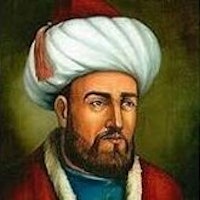Primary Truths
Topic: Truth, Law, & Principle
This malady was mysterious and it lasted for nearly two months. During that time I was a skeptic in fact, but not in utterance and doctrine. At length God Most High cured me of that sickness. My soul regained its health and equilibrium and once again I accepted the self-evident data of reason and relied on them with safety and certainty But that was not achieved by constructing a proof or putting together an argument. On the contrary, it was the effect of a light which God Most High cast into my breast. And that light is the key to most knowledge.
Therefore, whoever thinks that the unveiling of truth depends on precisely formulated proofs has indeed straitened the broad mercy of God. The aim of this account is to emphasize that one should be most diligent in seeking the truth until he finally comes to seeking the unseekable. For primary truths are unseekable, because they are present in the mind.
Abū Ḥāmid Muḥammad ibn Muḥammad al-Ghazālī, commonly known as Al-Ghazali, was a figure of towering intellect and deep spiritual insight. Born in Persia around 1058, he left an indelible mark on Sunni Islam as one of its most influential philosophers, theologians, jurists, and mystics. His profound understanding of the Islamic tradition, coupled with a relentless quest for spiritual truth, contributed to a body of work that transcended the boundaries of time and geography, embedding him deeply within the history and consciousness of the Islamic world. A scholar of immense stature, he was well-versed in the complexities of Islamic jurisprudence, the intricacies of philosophy, and the subtle depths of mysticism. His multifaceted genius is evident in his ability to interweave these diverse strands of knowledge into a cohesive vision of the faith.
Within the Islamic tradition, Al-Ghazali holds the distinct honor of being recognized as a Mujaddid, a renewer of the faith. The concept of the Mujaddid comes from a prophetic hadith stating that God sends such a figure once every century to revive the faith of the ummah - the global community of Muslims. Al-Ghazali was seen as embodying this role, as he worked tirelessly to elucidate the teachings of Islam, addressing both the challenges of his time and the timeless questions of human existence. His writings, imbued with a profound wisdom and a deep love for God, continue to guide and inspire Muslims around the world, aiding them in their quest to understand and live out their faith in a holistic manner.
Such was the impact of Al-Ghazali's works and the respect he commanded from his contemporaries that he was bestowed with the honorific title "Proof of Islam" (Hujjat al-Islam). This title is a testament to his role as a beacon of knowledge and spirituality, illuminating the path for seekers of truth in their journey towards God. Despite his passing on December 19, 1111, the legacy of Al-Ghazali continues to shine brightly, his teachings serving as a bridge between the intellectual and spiritual dimensions of Islam, guiding generations of believers towards a deeper, more meaningful understanding of their faith.
Deliverance from Error
Al-Ghazali, Abu Hamid Muhammad. "Al-Ghazali's Path to Sufism: His Deliverance from Error." Translated by R.J. McCarthy SJ, 1st ed., [Publisher], 2000.

Abu Hamid al-Ghazali
Theme: Truth


About This Imam Abu Hamid Al-Ghazali Quotation [Commentary]
Abu Hamid Al-Ghazali, in Deliverance from Error, describes a period of inner upheaval, saying, “This malady was mysterious and it lasted for nearly two months,” during which he was “a skeptic in fact, but not in utterance and doctrine.” His return to clarity did not come through reasoning but through a divine event: “it was the effect of a light which God Most High cast into my breast.” This light restored his trust in “the self-evident data of reason,” not by proving them, but by making them present again in a way he could rely on “with safety and certainty.” For Al-Ghazali, this experience marked a turning from argument to direct knowledge, where truth was not built, but given.
His insight that “primary truths are unseekable, because they are present in the mind” reflects a shift away from intellectual striving toward recognition of what is already known inwardly. These truths, for Al-Ghazali, are not reached through “constructing a proof or putting together an argument.” Rather, they are seen when “God Most High” illumines what is already within. He warns that “whoever thinks that the unveiling of truth depends on precisely formulated proofs has indeed straitened the broad mercy of God.” His language suggests that truth, especially in its primary form, is not the result of method, but of receptivity.
Al-Ghazali concludes that “one should be most diligent in seeking the truth until he finally comes to seeking the unseekable.” This movement—seeking until one arrives at what cannot be sought—points to a kind of knowledge that precedes explanation. Truth, in this sense, is not distant or hidden, but “present in the mind.” His account does not reject reason, but places it within a wider frame, where divine light and inner clarity reveal what argument cannot.
This passage by Imam Al Ghazali [Excerpt from the end of the introduction section]
“This malady was mysterious and it lasted for nearly two months. During that time I was a skeptic in fact, but not in utterance and doctrine. At length, God Most High cured me of that sickness. My soul regained its health and equilibrium and once again I accepted the self-evident data of reason and relied on them with safety and certainty But that was not achieved by constructing a proof or putting together an argument. On the contrary, it was the effect of a light which God Most High cast into my breast. And that light is the key to most knowledge.
Therefore, whoever thinks that the unveiling of truth depends on precisely formulated proofs has indeed straitened the broad mercy of God. The aim of this account is to emphasize that one should be most diligent in seeking the truth until he finally comes to seeking the unseekable. For primary truths are unseekable, because they are present in the mind.”
―Al-Ghazali, Abu Hamid Muhammad. “Al-Ghazali’s Path to Sufism: His Deliverance from Error.” Translated by R.J. McCarthy SJ, 1st ed., [Publisher], 2000.
Additional Quotes Related to Al-Ghazali
“It is customary with weaker intellects thus to take the men as criterion of the truth and not the truth as criterion of the men. The intelligent man follows Ali (may God be pleased with him) when he said, `Do not know the truth by the men, but know the truth, and then you will know who are truthful’. The intelligent man knows the truth; then he examines the particular assertion. If it is true, he accepts it, whether the speaker is a truthful person or not. Indeed he is often anxious to separate out the truth from the discourses of those who are in error, for he knows that gold is found mixed in gravel with dross.
Yet this is the prevalent idea among the majority of men. Wherever one ascribes a statement to an author of whom they approve, they accept it, even although it is false; wherever one ascribes it to an author of whom they disapprove, they reject it even although it is true. They always make the man the criterion of truth and not truth the criterion of the man; and that is erroneous in the extreme.”
―The Faith and Practice of Al-Ghazali. By W. Montgomery Watt―Senior Lecturer in Arabic University of Edinburgh. An E-text production by Islamic Philosophy Online for Al-Ghazali website. [Accessed 1/17/24.]
“Do not know the truth by the men, but know the truth, and then you will know who are truthful.”
―This popularly paraphrased quote, attributed to Al-Ghazali, is derived from his work, “The Deliverance from Error” (Al-Munqidh min al-Dalal).
Related Quotes
Copyright © 2017 – 2026 LuminaryQuotes.com About Us